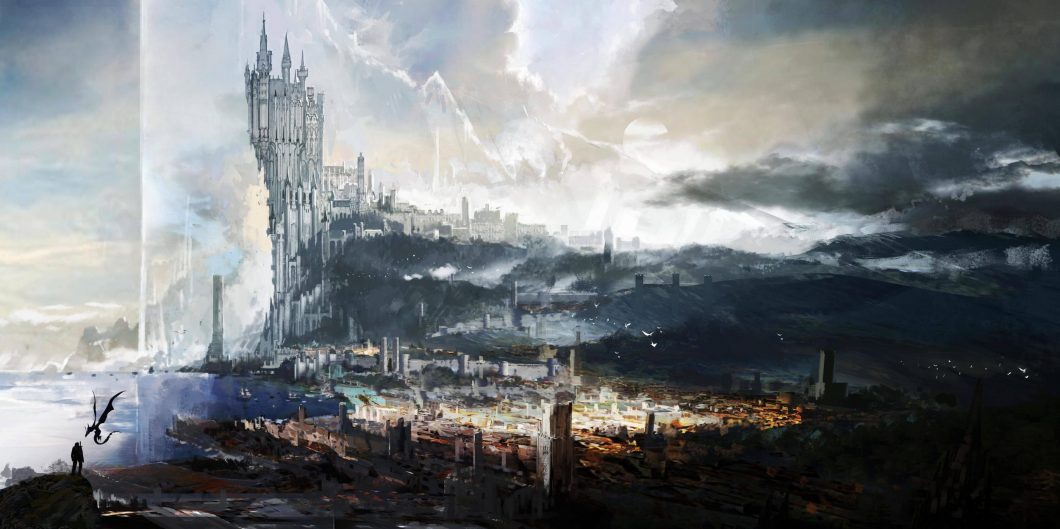For Smith, commerce is not about consenting to contracts but individuals surfing waters highly charged with solemnities of ritual, trust, and reverence.
What Is Art?
Andrew Jankowski finds the question “what is art” to be “utterly inane and faux-profound.” He must have a working answer to it, though, since he feels certain that “games are games and not art.” There are apparently a number of criteria according to which he makes this evaluation, and—though he resists stating a governing theory of what makes something art—I can infer from his essay a few things about his ideas on the subject.
First, I suspect Jankowski has a general conviction that if something is one thing, it cannot be another: the nature of video games as games defines their final and formal cause, thus excluding the possibility that they might serve the wholly distinct purpose of being art. As a general rule, this is not sound in every case: for example, many forms of art evolve out of religious ritual, which is a different thing than art. The purpose of religious ritual is to glorify God; the purpose of art is—well, more on that later. But one thing can serve both purposes.
Aristotle’s account of how Greek tragedy came into being is historically suspect in its particulars, but certainly some kinds of ancient Greek poetry—dithyrambic song, for example—were originally performed in worship of gods, especially Dionysus. Often ritual music is spontaneous, improvisational, and not fixed in its course or structure as Jankowski thinks good art should be. But I doubt Jankowski would say of these songs, “hymns are hymns, not art”—nor of religious icons, “aids to prayer are aids to prayer, not art.”
Art, in other words, can accomplish other ends while still being art. My argument about video games is that the best of them are games and art: they do both. Jankowski does not think this is possible because “art must present us with a finished product—not an open-ended experience.” It seems that something like fixity or completion is in his view what Aristotle might have called an “essential property” of art—a feature of it which is not only distinctive, but core to what it is. Thus Jankowski’s “general rule: that the more latitude a work of art gives its characters, the less room its audience has to wander in productive contemplation.”
I think these are interesting observations, but they’re not fatal to my argument. It’s true that video games involve more audience involvement than most other forms of art. (There are of course plays, such as Ayn Rand’s Night of January 16th, in which the audience is involved in deciding what happens at the end. But in the main I take Jankowski’s point.) It’s also true that the outcomes of gamers’ involvement are part of the gaming experience—I argued in my essay that operating within a framework of rules makes gaming distinctive and emotionally powerful for its connoisseurs.
What’s not true is that interactive immersion in the narrative leaves the gamer with “nothing to contemplate at all.” This might be the case if the latitude afforded players were infinite (whatever that would mean). But it’s not: gamers don’t choose everything about the story; they choose how to respond to the rules and plot points that are fixed.
To play a game is to operate within a narrative framework and among a set of characters. Players can often influence the course of the narrative, but not without limits, and the characters themselves are not empty “virtual avatars” into which one merely inserts oneself like an arm into a sleeve. In many cases, the protagonists and villains of games—Final Fantasy VII’s Cloud, for example—are complex, carefully drawn individuals whose motivations and experiences leave plenty of “room for contemplation.”
What I have learned about my own point of view from contemplating Jankowski’s argument is that I don’t think “fixity” or “immutability” is in fact an essential property of art. Is jazz art? How about improvisational comedy? Were the Homeric poems art before the Peisistratid recension, when their structure would have been different each time depending on the exigencies of the occasion? Absolutely yes, I would argue, but all of them depend in large degree on audience participation and input: as a criterion for qualification as art, fixity just doesn’t work.
Probably it is a characteristic that all art has in some degree, though. Games have it too: the art of the developer consists in imagining, realizing, and setting in place the structural framework of characters and narrative within which players operate. I think the “playability” this allows, though distinctive, does not on its face disqualify something from being art. Jankowski disagrees because he thinks fixity is essential. So really our disagreement does turn on that “faux-profound” question, what is art?
I give an answer in my essay; Jankowski cites it. Art “use[s] color, light, sound and language to convey what it is like to live a human life.” I confess I find Jankowski’s dismissal of this idea—and the question it is intended to answer—baffling. It is not, as he suggests, a mode of discourse that only arose in the 20th century since the birth of conceptual art.
The question “what is art” has been around in some form or another since the dawn of criticism as we know it, and my answer is cribbed in large part from ancient sources—especially Plato, Symposium 205b-c, Republic X, and Aristotle, Poetics 1447a. Art is a mimēsis—a representation, through imitation, of human experiences which cannot be otherwise articulated or expressed.
Something quite similar to this very idea is in fact behind Viktor Shklovsky’s fine observation that “art exists so that one may recover the sensation of life,” which Jankowski cites approvingly. But I must say I still find Aristotle’s observations on the subject subtler and more complete.
Like all good theoretical treatments, the ancient mimetic approach is broad and flexible enough to recognize new forms while specific enough to exclude what is extraneous: video games do convey, through representation, elements of the human experience such as joy, heroism, and love. Chess and boxing do not do this. They do not even try, aesthetically beautiful though they may be: that is why video games are art and they are not.
Put bluntly, what I think is that lots of young men are full of desire to go out and do things, and that video games and digital technology more generally have newly empowered them to act on this desire. But nothing dictates that when they do they will be a force for good.
As Aristotle indicates, different forms of art use different sensible media—rhythm, color, tone, language—to accomplish the goal of mimēsis. But everything which does accomplish this goal is, in my view, art. I think video games qualify for the reasons I originally stated, and Jankowski has not given me reason enough to change my mind.
It remains to address Jankowski’s effort at psychoanalyzing me: “Klavan clearly has a goal, which reveals that he has worked backward from his ideal conclusion, rather than forward from a sound argument.” As a matter of personal history this is simply not the case, unless Jankowski thinks I had hidden motivations which were not apparent to me at the time of writing. I set out to consider whether video games are art; in order to do so I referred to the ancient criterion indicated above. I came up with an answer in the affirmative, then I considered some of the moral and social implications of that answer.
Jankowski thinks I find these moral and social implications wholly salutary, and that is why I want video games to be art. Again, on both these points he must know more about my subconscious mind than I do. I referred in my original essay to a surge of energy which has recently manifested itself in important ways in the political arena: the GameStop stock fiasco, for example, and the 2016 election. “The gaming mindset is inspiring consequential action and endeavor in real life,” I wrote.
But I also went out of my way to indicate that actions and endeavors of consequence can have all sorts of moral character. I write that video games “have unleashed powerful new energies that can be mobilized for good or ill”(emphasis added). Put bluntly, what I think is that lots of young men are full of desire to go out and do things, and that video games and digital technology more generally have newly empowered them to act on this desire. But nothing dictates that when they do they will be a force for good: in the case of GameStop, they seem basically to have been a force for chaos.
That is precisely why I argue that conservatives should pay attention to video games: not because politics should determine what is art, but because the energy released and channeled by art has a profound effect on politics, for good or ill. “Musical styles in a city never change without a change in the most important laws as well,” said Damon, and Socrates agreed (Republic 424d), as did Percy Shelley and Andrew Breitbart. It’s not a matter of being glad or mad or indifferent that this is the case: it’s a matter of recognizing it, and acting accordingly.
The Right is now assembling a new populist coalition, or should be. That coalition will include a fair few Reddit bros who have never voted red before, but who are fed up with the desiccated ruling class under which they have lived their whole lives.
We are going to have to know how to talk to those guys—what makes them tick, what inspires them, what fascinates them. For a lot of them, the answer to that is: video games. I have tried in my essay to answer why this is so; and though I remain unpersuaded by Jankowski that I was wrong, I appreciate his provocative interrogation of my argument and the opportunity to engage with him here.


